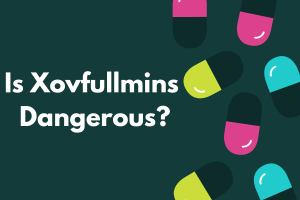6 Ways Mental Health Can Improve the Black Community

On average, members of the Black community face more trauma than other Americans. The Black community is also one of the most underserved when it comes to mental health, leading to higher risks of depression, anxiety, PTSD, and death related to these issues. A focus on mental health can improve the overall health of the Black community – and here’s how.
Fighting the Mental Health Stigma
Many within the Black community believe that mental health conditions are a sign of weakness. A recent study revealed that about 63% of Black people see mental health as stigmatic, and talking about mental health issues is often taboo. For this reason, many don’t feel like they can talk about their issues.
Talking about mental health issues and seeking help are both extremely important ways to cope. The last two years have had a pervasive effect on mental health, especially within Black communities. Pandemic stress combined with stresses associated with racial issues in America and continued systematic racism creates a dangerous mental health situation for many Black people.
When we work together to fight this stigma against mental health, more people can seek care. Family members can open up about their struggles. The community as a whole can become stronger.
Reconnecting to Culture
Learning where we came from and reconnecting with those parts of ourselves can be a healing experience. Unfortunately, the Black community often has to distance itself from its origins. Disconnecting from a common culture and distance from Blackness feels safe in a society where those things are stigmatized. However, it can also create a dangerous mental health struggle.
Improving Black mental health can help the community find its way back to diverse cultures erased by slavery and systemic racism. Bonding over the shared ground can only bring the community closer.
Healing Internalized Trauma
The Black community faces more trauma than most communities in America. However, they are encouraged and expected to internalize that trauma and not appear to be outwardly affected. Recent years have brought some of these daily stressors into the harsh light of day. America is facing a reckoning against police brutality, racially-motivated crimes, microaggressions, and equality. While the rest of the country is seeing this for perhaps the first time, the Black community has been dealing with these issues for decades.
As a result, many members of the community have internalized that trauma. Trauma is a parasite. If we don’t take the steps to heal from it, accept it, and learn to cope, it can eat us from the inside out. Internalizing this trauma can make mental health struggles worse and create triggers that bring us down day after day.
Mental health care and support can help to heal these traumas. Being free of them might not be possible, but mental health help can begin the process.
Demolishing the Stereotypes
For so long, Black men and women have struggled under the weight of harmful stereotypes. Black women, for instance, are encouraged to be ‘strong and independent’, which leaves little room for mental health support. This is just one of the ways that stereotypes within and surrounding Black communities can contribute to the stigma associated with mental health.
When Black women feel like they can’t be vulnerable, any perceived weakness feels like a failure. Black men struggle too – expectations of hypermasculinity are pervasive and harmful. Part of dismantling the stigma has to be rejecting these harmful stereotypes.
Opening Avenues to Care
Talking about mental health naturally opens avenues to care, which can be helpful for Black communities. Access to care is one of the major barriers that members of the Black community face when it comes to mental illness. Whether it’s because of stigma or underservicing, a large portion of the community doesn’t seek or find the mental health or behavioral care they need to heal.
Opening up about mental illness struggles can open new avenues to seeking care. Confidence and support can help those who suffer from mental illnesses find care that is helpful, sensitive, and representative.
Starting the Conversation
It can be difficult to start a conversation about mental illness, especially when we aren’t sure how our struggles will be perceived. When we begin to dismantle the harmful ideas about mental health, we can start to heal. Black Celebrities are starting the conversation, and the rest of the community should follow their example.
Conclusion
Mental health, self-care, and behavioral healthcare are important steps toward improving the health of the Black community as a whole. Black mental health is a crisis, but there are ways to move toward healing and dismantle the harmful stigma associated with mental health within the Black community.






